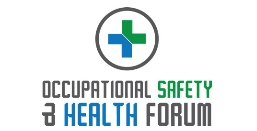Sleep. It’s something we spend a third of our life doing, but why is it important for workplace wellbeing? As technology has advanced and attention spans have dwindled, combined with the 24/7 “always on” culture in today’s modern society, sleep has never before been pushed so far down the pecking order in terms of importance.
Sleep is crucial for the core functionality and efficiency of the human body and without enough of it, it can cause serious and lasting health complications. It’s important that employers realise the impact that work, demands, deadlines, support (or lack thereof), and much more has on an individual’s sleep, and that more can always be done to sufficiently support their colleagues.
Physical Complications
Put simply, a lack of sleep can have an extremely negative effect on the body. Physically, poor sleep health can also put the body at a higher risk of serious medical conditions such as obesity, heart disease, high blood pressure (hypertension) and diabetes. Not to mention that sleeping less can lead to weight gain due to reduced levels of leptin (the chemical that makes you feel full) and increased levels of ghrelin (the hunger-stimulating hormone). Poor sleep also has a detrimental effect on the immune system, putting the body at greater risk of infections, bugs and common viruses.
Mentally, a lack of sleep can cause the brain to fog, making it difficult to concentrate and make decisions, making work and completing simple tasks harder and taking longer to complete. The risk of injury and accidents at home, work and on the road also increases. It can also cause employees to feel fatigued, short tempered, and irritable. Chronic sleep debt may also lead to long-term mood disorders like clinical depression and generalised anxiety disorder in adults.
Employee Performance
Therefore, whether the workforce within your business is manual, physical or office-based, a lack of sleep can could present itself in different ways, however, it is likely to be more noticeable at work while the brain is under more strain to perform, some key indicators could be:
- Decreased communication
- Performance deterioration
- Poor concentration
- Increased caffeine intake
- Greater risk-taking behaviour
- Increased number of errors
- Poor mood and/or appropriate behaviour
- Poor cognitive assimilation and memory
- Increased sickness/absences
Knock-On Effects
The health complications associated with poor sleep health can lead to a significant impact on business performance too. According to RAND Europe, 200,000 working days are lost each year due to sleep-related absences, costing the economy around £40bn each year – equivalent to 1.86% of GDP.
With access to hero’s award-winning wellbeing platform, Navigator, your team will gain access to evidence-based, research-led solutions, including advice from sleep experts and a wealth of resources, to help provide a positive impact on staff. For more information please get in touch with hero.







